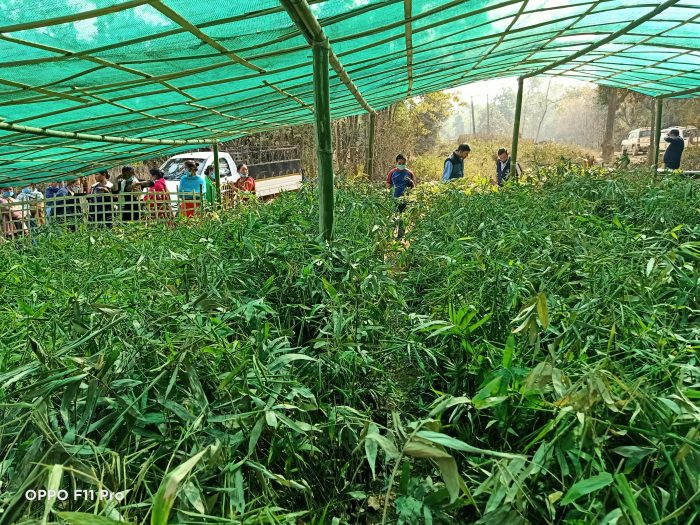Using Bamboo for Sustainable Development of Dalmia Cement and its stakeholders

Dalmia Cement has launched a project in partnership with GIZ aimed at fostering bamboo cultivation as a climate-resilient and sustainable source of livelihood for farmers, and simultaneously using the bamboo as a means of decarbonisation, by incorporating it into its cement plants as an alternate fuel. It is being implemented around the three integrated cement plants of Dalmia, in Umrangso (Assam), Rajgangpur (Odisha) and Dalmiapuram and Ariyalur (Tamil Nadu).
Bamboo is an economically and ecologically very viable regenerative alternate fuel, as on average, one acre of Bambusa Balcooa cultivation can sequester around 4,800 kgs of CO₂ from its third year of plantation. India has the second-largest bamboo resources in the world. It can be planted on areas with poor soil quality, and is not labour intensive, thus becoming a solution for additional agricultural income even for marginalised small farmers. It is also a rapidly regenerative energetic alternative to coal for industries with high energy consumption, with a calorific value comparable to coal (6,900 – 7,000 kcal/kg compared to 7,800 – 8,000 kcal/ kg).
An estimated 120,000 tons of bamboo will be made available annually from third year of cultivation, with a saving of around 30% on the cost of the traditional fuel it would replace. Additionally, from the third year of plantation, a minimum 14.40 million kgs of CO₂ will be sequestered annually through this project.
Approximately 4,000 farmers will adopt the newly acquired pre and post harvest cultivation practices for bamboo plantations. Additionally, 3,000 farmers will become members of six newly established farmer’s collectives (FPOs). The project also aims to promote sustainable farming practices among the target group, with an anticipated increase in income of 50% along with shift towards sustained long-term source of income.
The project started with a pilot in Umrongso, Assam in 2020. Already, more than 1.3 Lakh saplings have been planted in 600 acres of land. The project is being implemented with community participation and involves mobilisation, training and regular consultation and coordination with farmers. Seven hundred farmers are currently involved with the project.